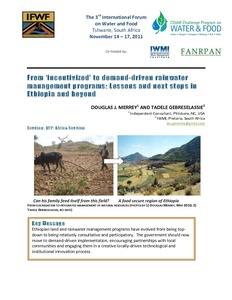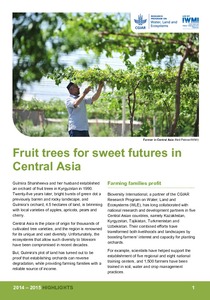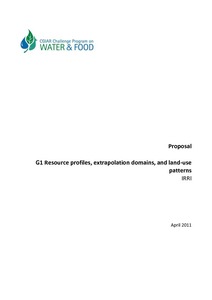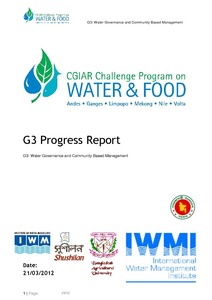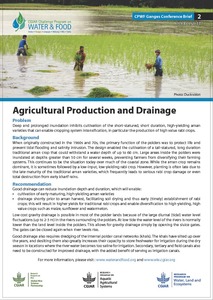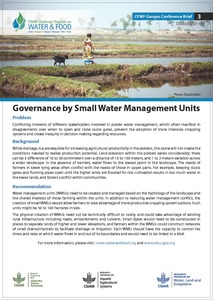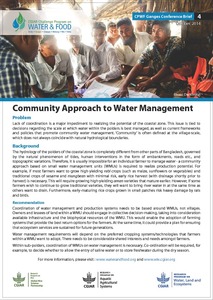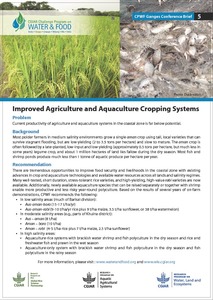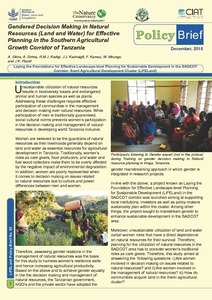From space to plot: assessment of land degradation pattern in Kenya and its implication for sustainable land management
Furniture and people: a photo journey from market to forest
G1 Resource profiles, extrapolation domains, and land-use patterns
The Ganges Basin Development Challenge (BDC) research program will focus on brackish-water coastal zones in the Ganges Basin, where agricultural lands have a maximum salinity greater than 5 ppt (parts per thousand) in the dry season (salinity is lower in the wet season). The BDC vision of success requires innovations in water governance, improved availability of dry-season water, improved practices for managing salt-affected lands, and intensification and diversification of farm systems.
G3 2012 Progress Report: Water Governance and Community Based Management
The Ganges Basin Development Challenge (GBDC) commissioned by the CPWF, aims to increase resilience of agricultural and aquaculture systems in the Ganges delta focusing water and food security. There are five projects namely G1, G2, G3, G4 and G5 having different objectives under Ganges Basin Development Challenge (BDC) program. The Project G3 is titled “Water governance and community based management”.
Ganges Coastal Zone Issue Brief 2: Agricultural Production and Drainage
Ganges Coastal Zone Issue Brief 4: Community Approach to Water Management
Gender, institutions and sustainability in the context of forest decentralisation reforms in Latin America and East Africa
Women’s participation in decision making at the user-group level and in forest committees has been demonstrated to have a positive impact on forest sustainability. For example, women’s participation enhances forest regeneration and reduces illegal harvesting through improved monitoring. Their presence in forest user groups increases the groups’ capacity to manage and resolve conflicts, which in turn increases the likelihood that resource users will comply with and respect harvesting and use rules.

